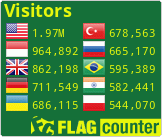Legal Relationship between TikTok Affiliates and TikTok Sellers after the Enactment of Ministry of Trade Regulation No. 31 of 2023 under Sharia Economic Law
DOI:
https://doi.org/10.32332/muamalah.v3i2.9863Keywords:
Legal Relationship, TikTok Affiliate, Sharia Economic LawAbstract
The existence of a legal relationship often underlies collaboration between parties, including between TikTok affiliates and TikTok sellers. The enactment of Ministry of Trade Regulation No. 31 of 2023 has changed the mechanism of TikTok's affiliate system, affecting the legal relationship between these parties. However, previous studies have not adequately explored the legal implications of these changes, particularly from the perspective of Sharia economic law. This study is a normative-empirical legal research employing a qualitative method and a juridical-sociological approach. Data were collected through observation, literature review, and interviews. The study distinguishes itself by combining doctrinal legal analysis with field-based empirical insights and by incorporating Islamic legal principles into digital commercial practices. The findings categorize TikTok affiliate mechanisms into two types. First, commission-based affiliates do not require prior approval from sellers, thus lacking a formal legal relationship. Second, affiliates who enter into cooperation contracts with sellers, which implies a legal relationship, although often weakened by the informal nature of these agreements. From the perspective of Sharia economic law, the first category aligns with a ju’alah contract, while the second involves a valid work-based contract. The study contributes new insights into the classification and legal strength of digital affiliate relationships under both state and Sharia law, especially in light of recent regulatory reforms
Downloads
References
Aini, Fauqah Nuri, Luqman Hakim Handoko, And Rio Erismen Armen. “Analisis Fiqh Muamalah Terhadap Penghasilan Pada Aplikasi Buzzbreak.” Tawazun: Journal Of Sharia Economic Law 6, No. 2 (2023): 279.
Catriana, Elsa. “Kemendag ‘Buka-Bukaan’ Alasan Kasih Izin Tiktok Shop Kembali Dibuka,” 2023.
Cindy Mutia Annur. “Jumlah Pengguna Tiktok Global Bertambah Lagi Pada Kuartal I-2023.” Https://Databoks.Katadata.Co.Id/Datapublish/2023/07/06/Jumlah-Pengguna-Tiktok-Global-Bertambah-Lagi-Pada-Kuartal-I-2023, 2023.
Haryono. “Konsep Al Ju’alah Dan Model Aplikasinya Dalam Kehidupan Sehari-Hari.” Al Mashlahah Jurnal Hukum Islam Dan Pranata Sosial Islam. 6, No. 2 (2018): 643–57.
Ifyan, Hijar. “Implementasi Akad Ju ’ Alah Dalam Aplikasi Implementasi Akad Ju ’ Alah Dalam Aplikasi Tiktok ( Mahasiswi Uin Khas Jember ).” Universitas Islam Negeri Kh. Achmad Siddiq Jember, 2022.
Indonesia, CNBC. “Tiktok Rajai Ecommerce RI Sampai Disorot Media Asing.” 26 April 2023, 2023.
Irwandi, Ferry. “Kejanggalan Dalam Kembalinya Tiktok Shop.” 2024.
Kitab Undang-Undang Hukum Perdata Burgerlijk Wetboek, Pub. L. No. 1320 (2014).
Nadia Ulva Febrianti, Shalsa Aina Widi Zahrafani, And Wafiatul Afifah. “Pengaruh Tiktok Shop Terhadap Pedagang Pasar Tradisional Di Pasar Tanjung Dan Ambulu Kabupaten Jember.” TUTURAN: Jurnal Ilmu Komunikasi, Sosial Dan Humaniora 1, No. 4 (2023): 218. Https://Doi.Org/10.47861/Tuturan.V1i4.571.
Novita, Diana, Agus Herwanto, Khasanah, And Dkk. “Tiktok Affiliate, A New Marketing Channel For Brands.” Jurnal Inovasi Penelitian 3, No. 9 (2023): 7467–72.
Oktavira, Bernadetha Aurelia. “Kapan Adendum Perjanjian Mulai Berlaku?” Juli 2023, 2023.
Peraturan Menteri Perdagangan. Peraturan Menteri Perdagangan No 31 Tahun 2023 Perizinan Berusaha, Periklanan, Pembinaan, Dan Pengawasan Pelaku Usaha Dalam Perdagangan Melalui Sistem Elektronik ( Permendag No 31 Pasal 21 Ayat 3 Tahun 2023), Pub. L. No. 31 (2023).
Rahmana, Putri Naning, Dhea Amalia Putri N, And Rian Damariswara. “Pemanfaatan Aplikasi Tiktok Sebagai Media Edukasi Di Era Generasi Z.” Akademika 11, No. 02 (2022): 403. Https://Doi.Org/10.34005/Akademika.V11i02.1959.
Rahmika, Izam Bahtiar. “Tinjauan Akad Ju’alah Terhadap Misi Berhadiah Dalam Fitur Mal Koin Pada Aplikasi Hago.” Universitas Islam Negeri Maulana Malik Ibrahim, 2023.
RI, Pementrian Perdagangan. “Soal Migrasi Tiktok Shop, Kemendag: Pembayaran Sudah Di Tokopedia,” 2024.
Suganda, Rangga. “Metode Pendekatan Yuridis Dalam Memahami Sistem Penyelesaian Sengketa Ekonomi Syariah.” Jurnal Ilmiah Ekonomi Islam 8, No. 3 (2022): 5. Https://Doi.Org/10.29040/Jiei.V8i3.6485.
Sumiati, Neni Nuraeni. “Akad Ijarah Dan Jualah Dalam Perspektif Fiqh Perbandingan Pada Kegiatan Bank Syariah Di Indonesia.” El-Iqtishady: Jurnal Hukum Ekonomi Syariah 4, No. 2 (2022): 192.
Sutin, Narto, And Rahmada Irawan Rizky. “Tiktok Menjadi Trend 2022 Di Platform Sosial Media.” Journal Of Social And Political Science 3, No. 1 (2023): 108Sutin, Narto, And Rahmada Irawan Rizky. “Tiktok.
Yanti Nasution, Eri, And Tika Indria. “Tren Belanja Online Pada Social Commerce.” Jurnal AKMAMI (Akuntansi, Manajemen, Ekonomi) 3, No. 3 (2022): 656.
Published
Issue
Section
License
Copyright (c) 2024 Ryan Ivan Bahtiar, Bhismoadi Tri Wahyu Faizal, Akhmad Farid Mawardi Sufyan

This work is licensed under a Creative Commons Attribution-ShareAlike 4.0 International License.
All articles in the Mu'amalah: Jurnal Hukum Ekonomi Syariah can be disseminated on condition that they still include the identity of the article and the source (Mu'amalah). The publisher is not responsible for the contents of the article. The content of the article is the sole responsibility of the author.
Authors who publish this subject agree to the following terms:
First, the Authors retain copyright and grant the journal rights from the first publication with the work simultaneously licensed under a Creative Commons Attribution-ShareAlike 4.0 International License that allows others to share the work with an acknowledgement of the work's authorship and initial publication in this journal.
Secondly, the authors can enter into a separate or an acknowledgement of its initial (e.g., post-institutional repository or publish it in a book) publication in this journal.
![]()
Third, the authors are permitted and encouraged to post their work online (e.g., in institutional repositories or on their website) before publishing work is cited.








